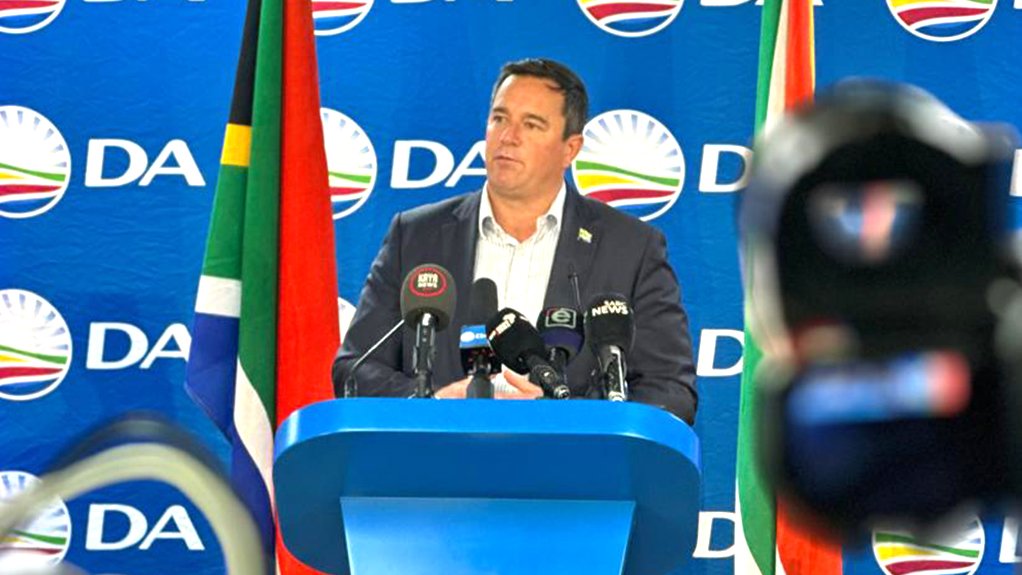Democratic Alliance (DA) leader John Steenhuisen noted that while the Government of National Unity (GNU) has on the whole met the requirements for sufficient consensus, as outlined in the Statement of Intent, on some key matters of economic policy, there are still areas of divergence that require attention.
Steenhuisen was speaking during the debate on the opening of Parliament, on Friday, where he said in all of the areas of divergence, he was convinced that partners in the GNU could find a way forward.
He said this would require parties to be honest about disagreements and to work in good faith with each other to find solutions.
He said examples of these were the National Health Insurance (NHI) Bill and Basic Education Laws Amendment (BELA) Bill.
Steenhuisen said the need for universal health coverage was obvious to every citizen, as were the serious problems of “corruption and mismanagement” in the public health sector.
However, he pointed out that the NHI in its current form did not do enough to address these problems, and added that its focus on “taking away the rights of medical workers and consumers” to access medical aid and private care was misplaced.
He said the same goes for the BELA Bill and some other initiatives.
Meanwhile, Steenhuisen welcomed government’s policy interventions, as announced by President Cyril Ramaphosa in his address on Thursday, to expand the basket of food items exempt from VAT, to review and reduce the fuel price, to prevent undue political interference in the public service, and to set up specialised policing units to fight violent crime and the construction mafias.
Steenhuisen said these policy changes were some that his party had long advocated for, and noted that these changes would make a meaningful impact on reducing the cost of living, enhance the capacity of the State, and tackle violent crime, which he said plagued too many communities.
He explained that the GNU has identified rapid and inclusive growth to create jobs as its apex priority, noting that it had committed to a responsible fiscal path that reduced the national debt to free up resources for productive investments.
“The planned review of sector master plans to identify obstacles to growth, the emphasis on increasing our focus on exports, and our shared commitment to slashing red tape to crowd-in private-sector investment, give us the key ingredients we need to succeed,” he said.
Steenhuisen explained that if the GNU succeeded in delivering on its apex priority of growing the economy and creating jobs, then the GNU, which he referred to as the “builders”, would defeat the “breakers” - opposition parties in Parliament.
“This is because, if we rapidly expand growth and job creation, we will defuse the populist tinder box that the breakers exploit for their own gain,” he said.
He alleged that opposition parties’ fear was that the GNU would succeed in growing the economy and making South Africa a better place.
“The greatest fear of the breakers is not that South Africa fails. It would suit them just fine if our country goes up in smoke, because it would fuel the politics of division and destruction that they thrive on. No, their greatest fear is that South Africa succeeds,” he said.
He claimed that this would destroy the foundation on which the opposition had built “their politics of resentment and populism”.
He acknowledged that as the GNU moved forward and as each partner in government retained their own identity, there would be disagreements.
“Nonetheless, this GNU does broadly represent the builders in South African politics, who want to see a better country for every citizen. And the truth is that the builders in our society have to make this government work, because the parties who sit on the opposite side of the GNU want to break South Africa beyond all repair through their looting, their populism and their violence,” he said.
EMAIL THIS ARTICLE SAVE THIS ARTICLE ARTICLE ENQUIRY
To subscribe email subscriptions@creamermedia.co.za or click here
To advertise email advertising@creamermedia.co.za or click here











